Communication media
Journalism in all types of channel: television, press, radio and digital media.
Enrolment open

Blanquerna-URL - Plaça Joan Coromines. 08001 Barcelona
School of Communication and International Relations
Studying the Double Degree in Advertising, Public Relations and Marketing and Journalism and Corporate Communication at the Blanquerna School of Communication and International Relations in Barcelona is a great opportunity for students who wish to attain a hybrid profile in the disciplines most closely linked to marketing strategy and business/institutional communication, where there are emerging, multidisciplinary sectors that are constantly changing as a result of technological innovation and new forms of social and business communication.
The extensive experience of the School's teaching staff and their permanent contact with professional activity allows us to constantly adapt the content of the course to changes in the digital and mobile ecosystem.
Journalism in all types of channel: television, press, radio and digital media.
Creation of content and communication strategies for companies and institutions.
To give our brand a differentiated personality to stand out from the competition.
To give persuasive information about the brand.
To improve the brand's reputation among its audiences.
A guaranteed future career.
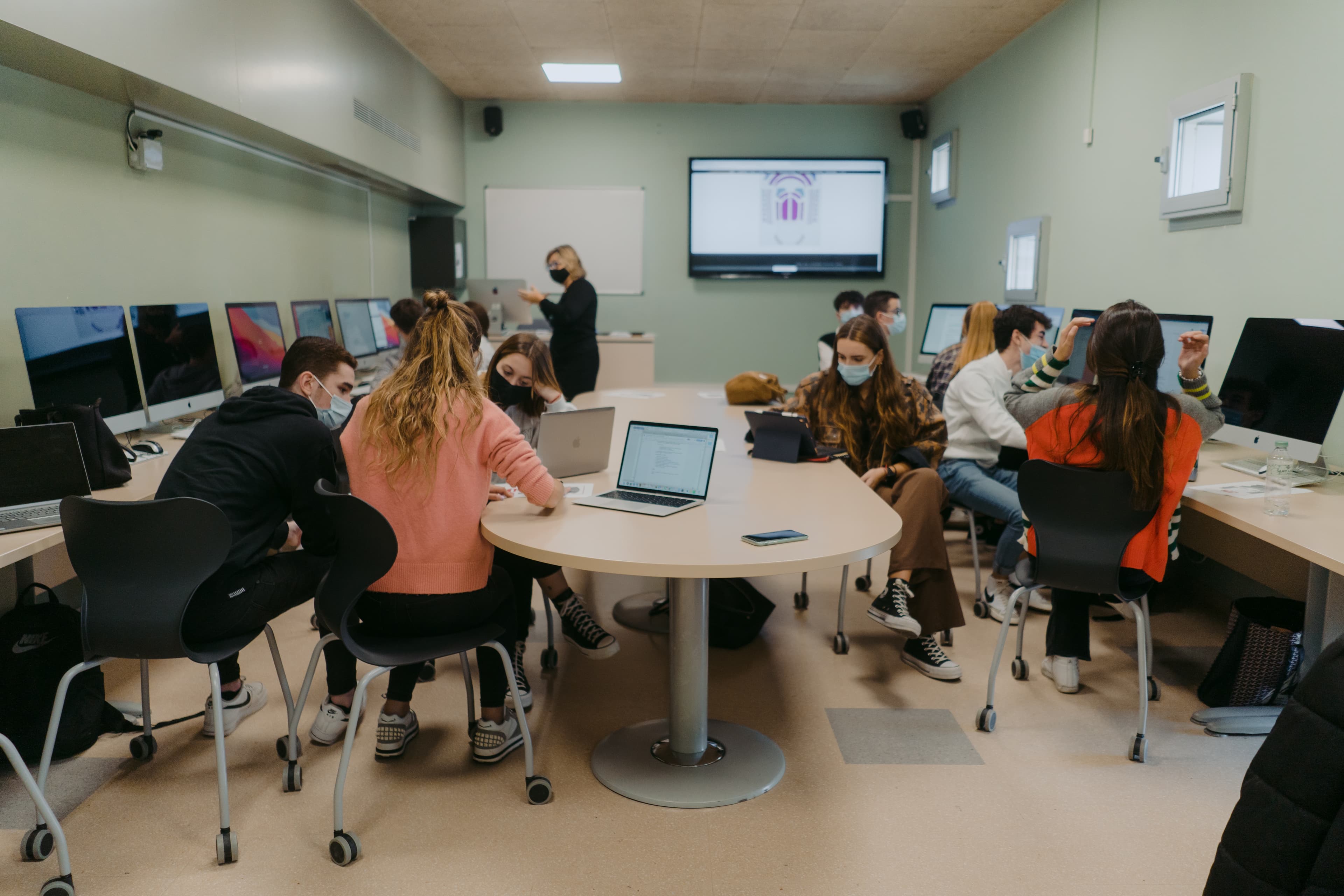
Journalism and Corporate Communication
The course provides students with the skills and knowledge to successfully join the professional communication sector, either in the media or in companies, government bodies and other organizations, where corporate communication plays an increasingly important role.
Advertising, Public Relations and Marketing
The subjects of the Bachelor's Degree in Advertising, Public Relations and Marketing provide students with skills and knowledge in all three disciplines. They thus develop a versatile profile that allows them to have successful careers in the professional sector.
The student will learn about the specialized areas of each of the degrees:
The Blanquerna methodology is based on seminars, a core element in achieving personalized and qualitative learning and holistic training that includes not only academic and professional competencies but also personal and human skills.
With a focus on subjects with a theoretical component, master classes are taught by professionals and experts in a particular field, who offer guidance and support to their tutees in their particular disciplines, and build an ongoing academic and personal development relationship.
Seminar tutors work 6 hours a week with a maximum of 12 students. This establishes a relationship of trust between tutor and tutee and allows the monitoring of each tutees' progress. These sessions also help students to see the connections between what they are studying and their future professional careers.
We have agreements with leading multinational companies in the country, as well as private companies, and internal and external communication, business, marketing and public relations departments. The School has an agreement with more than 1,200 companies.
Studying abroad is a life-changing experience. We offer you the opportunity to take part in various exchange programs and internships abroad, as well as to participate in a variety of international cooperation programs.
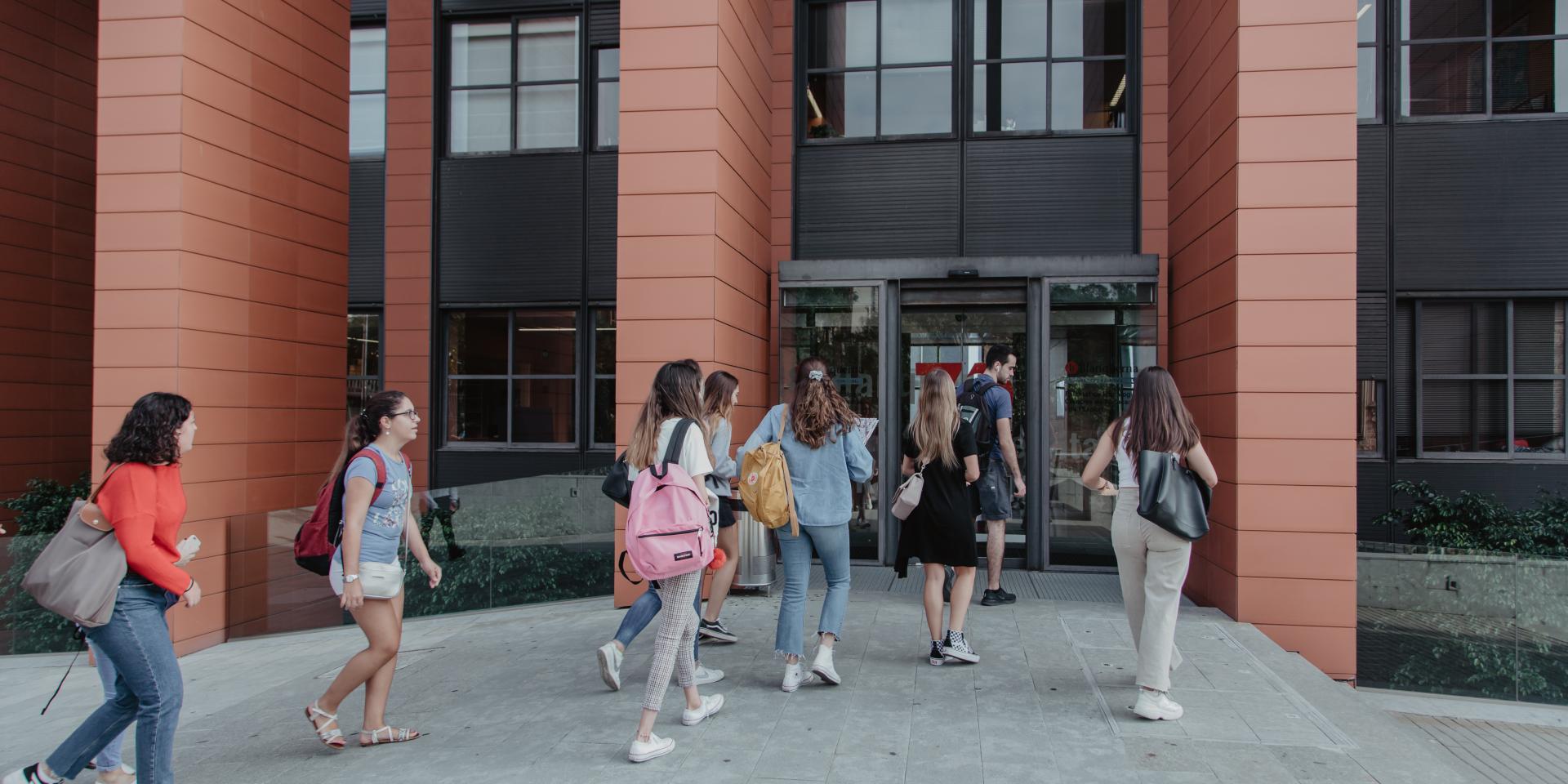
Study for two majors simultaneously, consecutively or following a track tailored to you
News

June 28, 2022

June 29, 2021
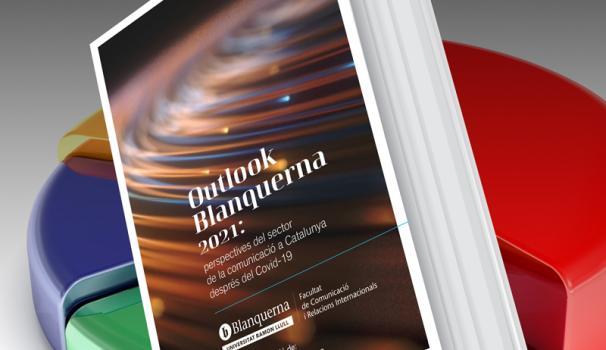
May 28, 2021
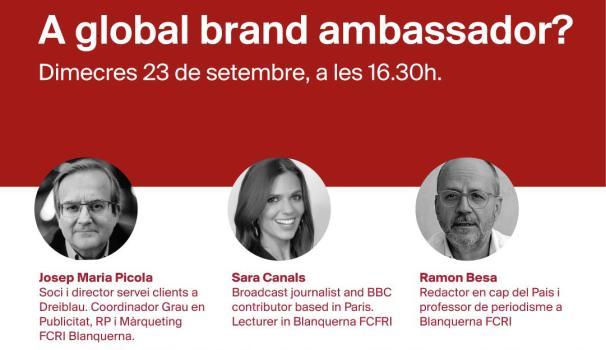
September 18, 2020

Blanquerna is a university with an international vision. Every year, we welcome students from all over the world wishing to study a full bachelor degree at our center. You could be among them.
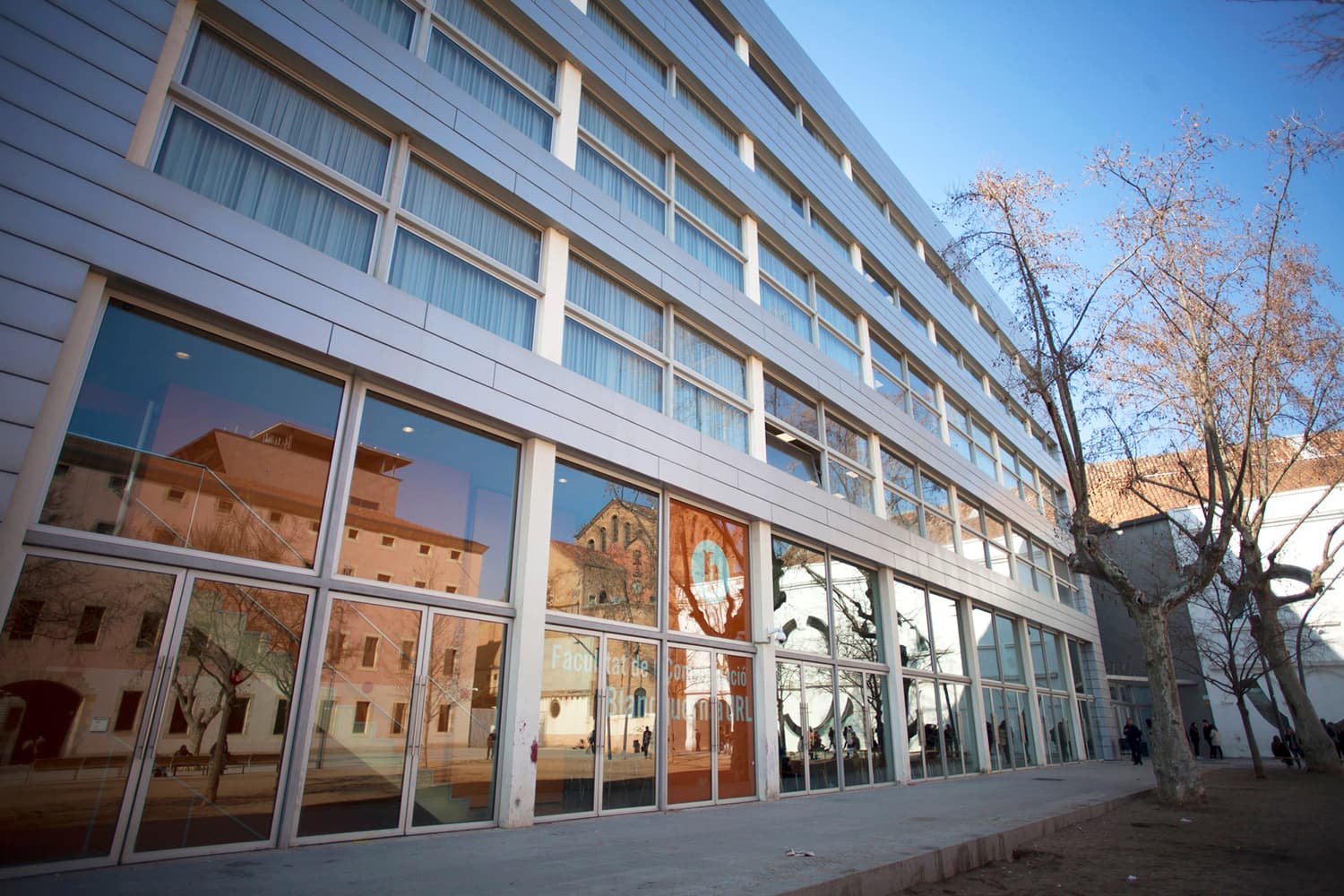
| Subject | Credits | Academic type | |
| First semester | |||
| General Sociology | 3 | Core curriculum | |
| History of Contemporary Thought | 6 | Core curriculum | |
| Theory of Communication and Information | 6 | Core curriculum | |
| Language I. Catalan Language | 3 | Core curriculum | |
| Language II. Spanish Language | 3 | Core curriculum | |
| Seminar I. Introduction to Communication | 8 | Core curriculum | |
| English 1 | 3 | Compulsory | |
| Second semester | |||
| Language and Techniques in Image and Sound | 3 | Compulsory | |
| Information Management | 4 | Compulsory | |
| Sociology of Communication | 3 | Core curriculum | |
| Aesthetics | 4 | Compulsory | |
| Language III. Text Types | 3 | Core curriculum | |
| Seminar 2. Narration | 8 | Core curriculum | |
| English 2 | 3 | Compulsory |
| Subject | Credits | Academic type | |
| Third semester | |||
| Introduction to Advertising, PR and Marketing | 6 | Core curriculum | |
| Introduction to Journalism and Corporate Communication | 6 | Core curriculum | |
| Introduction to Audiovisual Communication | 6 | Core curriculum | |
| Seminar III. Professional Communication | 8 | Compulsory | |
| Contemporary Political and Social History | 3 | Compulsory | |
| English 3 | 3 | Compulsory | |
| Fourth semester | |||
| Seminar IV. Integral Management of Communication | 8 | Compulsory | |
| Theory and History of Journalism | 3 | Compulsory | |
| Basic Principles in Design | 4 | Compulsory | |
| Audiences and Markets | 3 | Compulsory | |
| Fundamentals in Marketing | 3 | Compulsory | |
| Seminar IV. Introduction to Advertising, PR and Marketing | 8 | Compulsory | |
| New Media | 3 | Compulsory | |
| Introduction to Economy | 4 | Compulsory | |
| English 4 | 3 | Compulsory |
| Subject | Credits | Academic type | |
| Fifth semester | |||
| Business and Structure of Communication | 4 | Compulsory | |
| Corporate Identity and Culture | 3 | Compulsory | |
| Writing Genres and Formats | 3 | Compulsory | |
| Radio Genres and Formats | 3 | Compulsory | |
| Audiovisual Genres and Formats | 3 | Compulsory | |
| Seminar V. Skills and Competences for Production I | 8 | Compulsory | |
| English V | 3 | Compulsory | |
| Communication Law | 4 | Compulsory | |
| Sixth semester | |||
| Digital Content Management | 3 | Optional | |
| Development of Projects | 3 | Compulsory | |
| External Internships | 12 | Practicum | |
| Seminar VI. Skills and Competences for Production II | 8 | Compulsory | |
| Development of Projects | 4 | Compulsory | |
| Strategic and Operational Marketing | 3 | Compulsory |
| Subject | Credits | Academic type | |
| Seventh semester | |||
| Seminar VII. Specialized Information | 8 | Compulsory | |
| Final Degree Project I | 6 | Final degree project | |
| English VI | 3 | Compulsory | |
| Seminar V: Strategies in Communication I | 8 | Compulsory | |
| Strategic Planning in Advertising and PR: the Planner | 3 | Compulsory | |
| Conceptualisation in Advertising and Public Relations | 3 | Compulsory | |
| Techniques in Media Planning | 3 | Compulsory | |
| Eighth semester | |||
| Advanced Design | 4 | Compulsory | |
| Reputation, Crisis Communication and CSR | 4 | Compulsory | |
| Final Degree Project II | 6 | Final degree project | |
| Seminar VIII. Public Relations and Press Office II | 8 | Compulsory | |
| External Internships | 12 | Practicum | |
| Seminar VI: Strategies in Communication II | 8 | Compulsory |
| Subject | Credits | Academic type | |
| Nineth semester | |||
| Ethics of Communication I | 3 | Core curriculum | |
| Theory and Techniques in Public Relations | 3 | Compulsory | |
| Digital Marketing | 3 | Optional | |
| Company Management in Advertising and PR. Business Management | 4 | Compulsory | |
| Seminar VII: Agency-Advertiser Role I | 8 | Compulsory | |
| Final Degree Project I | 6 | Final degree project | |
| Free Elective I | |||
| Off-campus Internship | 6 | Optional | |
| Psychology of Communication | 3 | Optional | |
| International Relations | 3 | Optional | |
| Religious Journalism | 3 | Optional | |
| Tenth semester | |||
| Seminar VIII: Agency-Advertiser Role II | 8 | Compulsory | |
| Final Degree Project II | 6 | Final degree project | |
| Ethics of Communication II | 3 | Core curriculum | |
| Strategies in Public Relations | 3 | Optional | |
| International Marketing | 4 | Compulsory | |
| Strategy and Planning in Media | 3 | Compulsory | |
| Free Elective II | |||
| History of Literature | 3 | Optional | |
| Communication, Culture and Spirituality | 3 | Optional | |
| Cross-Cultural Communication | 3 | Optional | |
| You have to choose 6 credits among the Free Electives (I,II) |
Course fees are paid in installments without any interest. At the time of enrollment, 50% of the total cost of the credits for which the student is enrolled must be paid*; the remaining 50% is split into nine monthly installments (from October to June) payable by direct debit.
The tuition fee / credit of degrees is regularized each academic year for all courses.
The Double Degree in Advertising, Public Relations and Marketing and Journalism and Corporate Communication has a broad career path, with a highly diverse range of career opportunities in the field of communication.

They are the journalists in charge of the teams of newspapers, television channels and audio-visual production companies, radio stations and various programs.

The media can be divided into subject areas such as international, politics, economics, technology, culture and sports, among others, led by journalists.

Reporting previously obtained and verified information is essential to journalism.

Writing opinion pieces is part of the journalist's work.
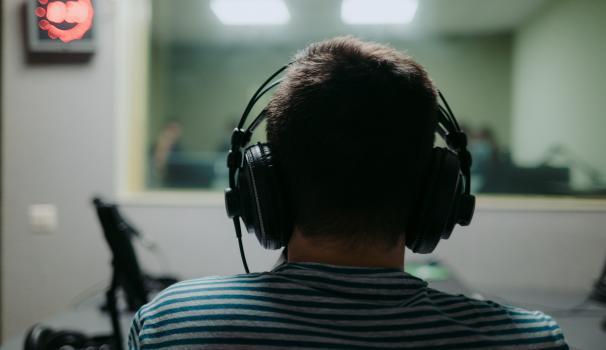
The audio world, both radio and digital, with podcasts, is experiencing a peak.
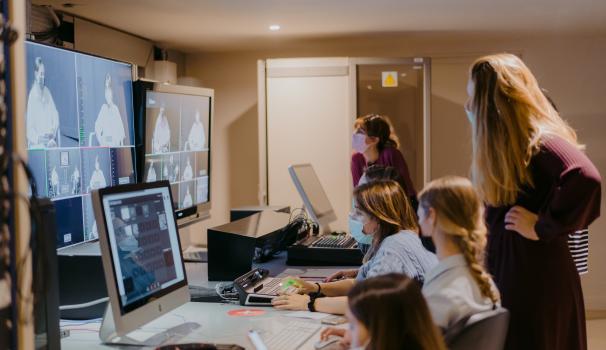
Preparing subjects and contact with interviewees are tasks carried out by media producers.
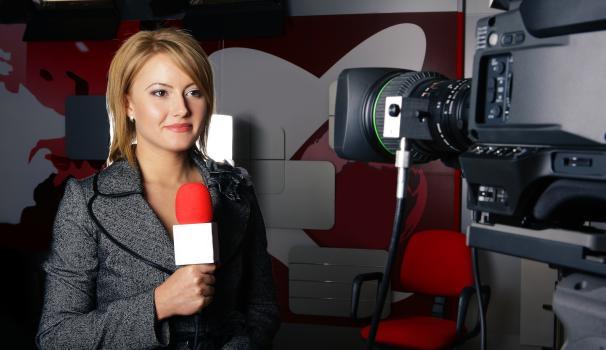
Journalists who work in front of the camera, hosting television programs, are presenters.

A TV reporter is a professional journalist.

The media increasingly demand more and more professionals with digital talent to develop content for platforms and social networks. They are also in great demand for corporate communication.

Ensuring news coverage from different parts of the world is absolutely necessary.
Photojournalists play an essential role by showing reality in images.


The growing sensitivity to equality between people has brought about the creation of the figure of gender editor.

Journalists also work in verification teams to combat disinformation.
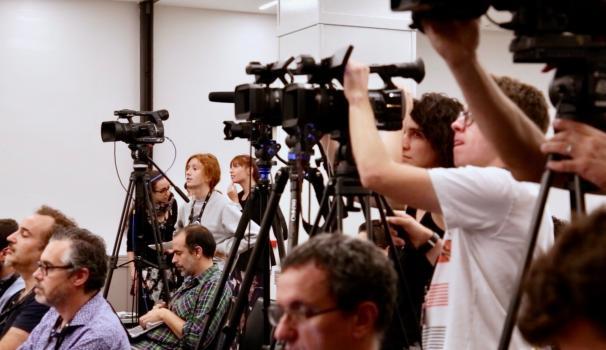
Journalist in charge of media relations.
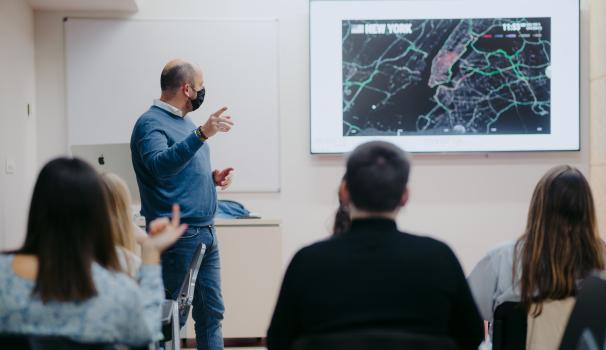
A professional who sets the institution's communication strategy.

Communication agencies hire journalists to manage the communication of the companies and institutions they work for.

A professional specialized in speaking to the organization's target audiences.

The dream of some graduates is to give vent to their creativity and win awards as a copywriter, art director or planner in an agency.

Manage large advertising campaigns by renowned brands, acting as an executive for leading companies in the sector.

The digital and social media world opens up endless professional opportunities that are increasingly interesting and specialized.

Product definition, communication and sales in a company's marketing department.

Product and corporate branding in a company's marketing department.

Creation of content by the brand, outside the usual advertising formats.
Montserrat Arbós Figueras
Josep Maria Picola Meix
Sandra Balsells Cubells
Aleksandra Krtolica Lukic
Valentina Laferrara
Marc Rosado Salvador
Eduard Vidal Portés
Cristian Marc Alegre Antón
Ester Almenar Taya
Lluís Anyó Sayol
Sue Aran Ramspott
Sonia Ballano Macías
Hugo Jordi Ballón Marco-Bach
Pilar Baradat Marí
Serena Rachel Barkham
Jaume Benet Busquets
Alain G.F. Blomart
Ignasi Boada Sanmartín
Laia Bonals Ruiz
Joan Bosch Garcia
Jordi Botey López
Josep Maria Brugues del Moral
Jordi Busquet Duran
Quim Calvo Vergés
Judith Calzada Duaigües
Francesc Canosa Farran
Juan Pablo Capilla Garcia
Joan Joaquim Carreras Goicoechea
Xavier Casals Meseguer
Jordi Collell López
Marc Compte Pujol
Juan Cuenca Fontbona
Joaquim Cuixart Valero
Andrea Daza Tapia
Fernando de Felipe Allué
Sonia de Jaime Rodríguez
Rafael De Ribot Torrella
Núria Escalona Nicolas
Daniel Esparza Olivero
Roger Esteban Mondaray
Clàudia Esteruelas Sardó
Glynn James Euston
Joan Francesc Fondevila Gascón
Ramon Maria Fondevila Guinart
Pere Franch Puig
Salvador Garcia Arnillas
Uri Garcia Medalla
Jordi Garcia Soler
Iván Gómez García
Francesc Grané Terradas
Marta Grau Rafel
Jonathan Green
Diane Hoyle
Ricardo Iscar Álvarez
Oriol Izquierdo Llopis
Juan Ramón La Parra Martínez
Carlos Lamelo Valera
Montserrat Llussà Masdéu
Maria Teresa Luis Compte
Esperanza Maestro Babío
Juan Ignacio Marcet Gisbert
Marta Marín Anglada
Oriol Massegú Blanch
Judit Mata Monforte
Alfonso Medina Cambrón
Mònica Mestanza Garcia
Ramon Millà Bruch
Esteve Miralles Torner
Carlos Monte Salvador
David Morales Amorós
Gemma Morató Sendra
Bartolomé José Moya Olives
Jacint Niqui Espinosa
Anna Maria Nogué Regàs
Tracey Owen
Lluís Pastor Pérez
Susana Pérez Soler
Jaume Peris Llimona
Ronald Wayne Pfeil Stackpoole
Marta Piñol Querol
Patricia Plaja Pérez
Marcos Polo López
James William Pownall Graumann
Cristina Puig Vilardell
Isabel Quiles Perez
Jaume Radigales Babí
Alba Ramírez Pagès
Carles Riera Fonts
Marc Roig Badia
Josep A. Rom Rodríguez
Ivan Rosquellas Carrion
Alba Sabaté Gauxachs
Joan Sabaté Salazar
Ferran Sáez Mateu
Sílvia Sáez Sánchez
Josep Sala Colom
Aníbal Salazar Anglada
Jordi Sànchez Torrents
Josep Vicent Sanchis Llàcer
Eva Santana López
David Serrano Blanquer
Marçal Sintes Olivella
Antonio Solanilla Ruiz
David Tetilla Llaó
Joan Tharrats Pascual
Francesc Torralba Roselló
Xavier Vega Esquerra
Francesc Jesús Viadel Girbés
Sandra Vilajoana Alejandre
Francesc Vilallonga Montaña
Elisa Vivas Soto
Jennifer Weiss
Ursula Frances Wolf
Enric Xicoy Comas
Elena Yeste Piquer
Jacobo Zabalo Puig
Klaus Zilles
The application process for a place in the 2026-2027 academic year is now open and consists of three phases:
The application for a place can be made online or in person and entitles the applicant to participate in the admission process.
It can be done via the Application for admission button on the page for each degree, or directly from here, and requires:
It can be done at the School itself, by going to the Student Information and Guidance Service (SIOE), and the following must be submitted:
Approximately within two working days after the place application, the student will be informed by email about their admission. If admitted, the same message will invite them to formalize enrollment, including instructions on when and how to complete the procedure.
The criterion used to call admitted students to formalize enrollment will be the order of payment of the place application. For degrees with more than one shift, note that a shift may fill up during the enrollment period. The place will be definitive once the student has submitted the documentation with the final university entrance information and the first enrollment payment has been made.
For degrees taught in English, students must demonstrate a minimum B2 level of English to be admitted. The level can be accredited through the level test that all degree students must take before starting their program. To prove the minimum level, an official language certificate of B2 or higher can also be submitted: IELTS (6-7), TOEFL (IBT 90-110), CAMBRIDGE, or Official Language Schools, obtained within the last two years. Certificates from other organizations will not be accepted. The certificate does not exempt students from taking the level test to determine the English level for the first year.
It is the student's responsibility to have a level equivalent to B2 in the language of instruction of the degree to properly follow classes
The student called to enroll may choose between two options, depending on whether they already have the definitive entrance pathway or not.
Enrollment in the degree can be formalized before passing the PAU (University Entrance Exams) or CFGS or having the entrance pathway. Enrollment will be conditional on the presentation of the corresponding admission pathway. This option secures the place and allows choosing the shift, in the case of degrees with more than one shift, while places are available.
If the student does not obtain the entrance pathway, the enrollment fee will be refunded, but they will lose the place, preference in shift selection, and the amount paid for the place application (€50). If places remain available in July, they may choose to stay on the waiting list until September, and the money will be held, but they will no longer have preference for shift selection. If they do not obtain the entrance pathway by September, the enrollment fee paid will be refunded.
It will be formalized if, at the time of processing the enrollment, the student already has the university entrance pathway. They may opt for the available places and shifts.
IMPORTANT: Degrees with more than one shift may exhaust places in a specific schedule with conditional enrollment. The required documentation must be uploaded via the Document Repository.
The place will be definitive once the student has submitted the documentation with the final university entrance information and the first enrollment payment has been made.
NOTE: Students in the Communication Degrees must take an English level test that will not be exclusionary for admission but will determine the level at which they start the first year. Each student will be informed of the test date and time by email.
Studies can be paid upfront and/or in interest-free installments. If payment by installment is selected, upon enrollment the student will have two business days to pay 50% of the total cost of the enrolled credits, using their chosen form of payment; this payment will not be taken by direct debit. The remaining 50% will be divided into nine monthly payments from October to June via bank direct debit from the account provided at the time of enrollment. Prices for each academic year are updated annually.
Once payment is made, the corresponding receipt of enrollment can be viewed in the student's Document Repository and via the student's portal.
For the foreign student admission process, the following considerations and requirements must be taken into account in accordance with the prevailing regulations.
Students must apply to the Universidad Nacional de Educación a Distancia (UNED) to obtain the credential certifying that they meet the requirements to access university studies within the state education system (UNED Credential). Therefore, they do not need to take the PAU (University Entrance Exams), but without the mentioned credential, they cannot enroll in our degrees.
The education systems that can be accessed through this pathway are: Germany, Andorra, Austria, European Schools (European baccalaureate), International Baccalaureate, Belgium, Bulgaria, Croatia, Denmark, Slovakia, Slovenia, Estonia, Finland, France, Greece, Hungary, Ireland, Iceland, Italy, Latvia, Liechtenstein, Lithuania, Luxembourg, Malta, Norway, the Netherlands, Poland, Portugal, the United Kingdom, the Czech Republic, Romania, Sweden, Switzerland, China and Cyprus.
These students may access our degrees by submitting the homologation of the High School diploma from the Spanish Ministry of Education or from the autonomous communities with transferred competence, such as the Generalitat de Catalunya. Proof of application for convalidation will be sufficient for students to enroll and begin taking a bachelor's degree course, however full enrollment is conditional on convalidation being confirmed. Bear in mind that convalidating studies can take more than three months to complete, so this process should be done in parallel with the admissions process to our bachelor's degrees. If the convalidation resolution is not obtained in the terms requested by the interested party, the results of any exams taken, or the enrollment made as a result thereof, are rendered null and void.
For any questions or inquiries about the place application or enrollment process, contact [email protected]
RELATED PROGRAMS
We equip you for change



